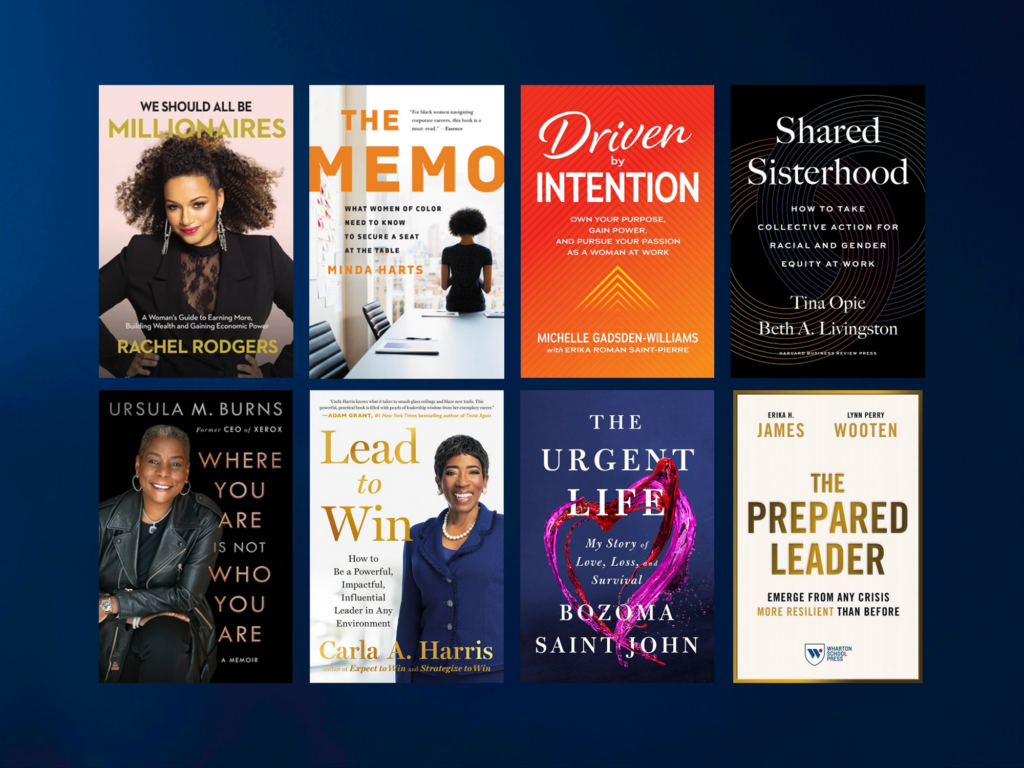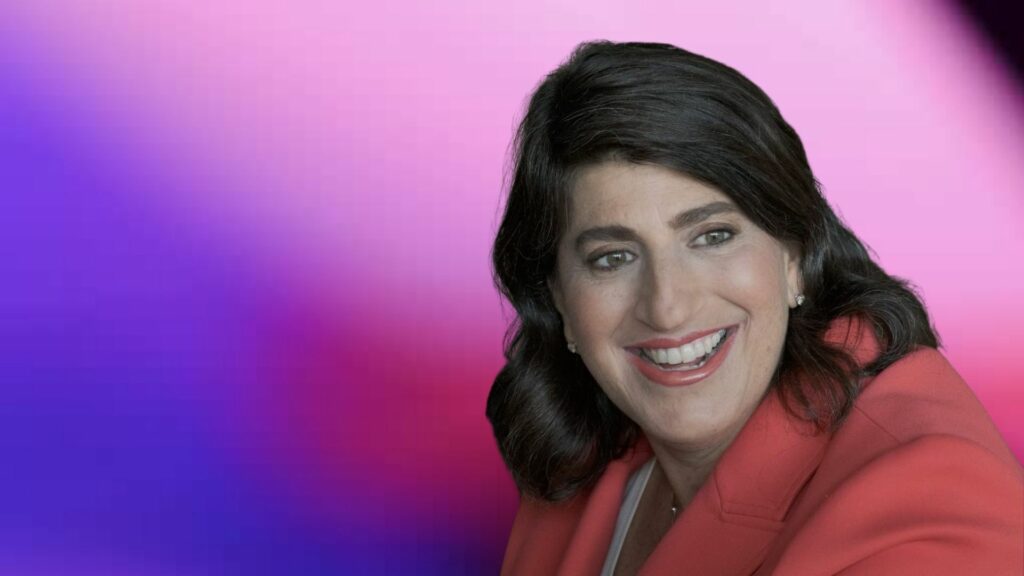Major money mistakes and how to avoid them with Laura Mattia: VIDEO

Money touches every aspect of life, yet it’s often a taboo topic.
Only in the most vulnerable stages of life do people (particularly women) tend to be confronted with the harsh realities that they just don’t know as much as they should or could about their own financial situation.
Laura Mattia is often struck by how disengaged people tend to be with their own financial literacy and she’s on a mission to change that, one conversation at a time.
“It’s about controlling the controllable,” she says.
With over 30 years of experience in the field, Mattia fills her time as an educator, speaker, author and Principal Financial Planner of Atlas Fiduciary Financial, LLC.
She is also the creator and director of The Women’s Money Empowerment Program at the not-for-profit Women’s Resource Center.
The goal of the program? To help women build financial security by building wealth, planning for the future, and navigating transitions such as divorce, death, a significant move, graduation, retirement, or inheritance.
MBAchic sat down with Mattia to discuss the crucial elements of money empowerment during uncertain economic times, the three bucket financial approach every woman needs to implement today, and why she believes everyone’s financial mantra should center around making the next right move.
To give back to other women and help mentor those who cannot afford a one-on-one with a financial professional, the WRC accepts volunteers, sponsorships and donations. Head here to get involved.
Full video text transcription:
MBAchic:
Welcome everyone. My name is Torri Singer. I’m a reporter for MBAchic and I am joined today by financial expert, Laura Mattia. Laura has over 30 years of experience in the field. She fills her very busy schedule as an educator, a speaker, an author, and the Principal Financial Planner at Atlas Fiduciary Financial. So Laura, thank you so much for your availability to connect with us today.
Laura Mattia:
It’s my pleasure, it’s an honor to be here.
MBAchic:
The Women’s Money Empowerment program is a program that you are the creator and director of at the not-for-profit the Women’s Resource Center. So I was wondering if you can describe the goal of this program and introduce our audience a little bit to the women’s resource center as well.
Laura Mattia:
Sure. So I’ve been working with women and money for many years individually and both commercially and not. And even in terms of academics, I do have a PhD and my PhD, thesis. A lot of the articles that I’ve published all have to do with women and money and there’s definitely a need there for women to get more engaged with their finances. We wanted to provide a resource that women could go to, a resource where they could get unbiased, objective, merit driven, guidance and advice. So not sales, and honestly, to get that type of advice, you usually have to have significant money. So we wanted to take that barrier away and just be there for women to get this kind of advice. I should say we have a hotline where women can schedule an appointment with us to talk to us about their financial concerns. We also have done webinars as well as some in person seminars, for various different groups. We just finished a group for women going through a divorce. We’ve done women who are recently widowed women, women who are just trying to become more financially empowered. So we’ve done a lot of different types of seminars and webinars. The women’s resource center is a unique organization and not all cities have centers like this. So we wanted to make sure that people understood scientifically and empirically the value that it can provide.
MBAchic:
Thank you so much for that context. It is such an important resource and one that I think there is such a great need for it. As you had said, very few cities have this kind of accessibility, especially people who are not able to afford those high price tag one-on-one financial consultation services. You had mentioned a bit about your webinars and seminars that you’ve conducted. And I did want to delve into one of your more recent webinars, which was the financial transitions money empowerment during uncertain times, obviously extremely relevant conversation to what we’re all experiencing and what I found very interesting, you did discuss a study of financial literacy among women, and you had found that high earning women specifically had the highest financial literacy scores among women, which is not so surprising, but overall these scores still lag behind men. So I was wondering if you could talk a little bit about this and elaborate on why even some high earners, perhaps women with their MBAs, like a lot of our audience members are, are vulnerable to having poor financial literacy.
Laura Mattia:
Sure. So yes, the study I was referring to, was a research study that I was involved in. We used a large data set of I think something like 6,000 participants in the study, various ages, different demographics and so forth, they were given a financial literacy test exam, if you will. And it was based upon different areas. It included investing and borrowing and saving and a couple of other facets to what you need to know in the financial arena. A lot of these financial topics and concepts are not even necessarily learned in school. I did not. I have an MBA, in accounting and yeah, I graduated being able to read a financial statement, but there were things that we did not necessarily learn in the MBA program around personal finance.
A lot of these financial topics and concepts are not even necessarily learned in school. I did not. I have an MBA, in accounting and yeah, I graduated being able to read a financial statement, but there were things that we did not necessarily learn in the MBA program around personal finance.
Laura Mattia
So this is really focused around personal finance and what an individual should be concerned about. We saw, first of all, divorced and widowed women, women that were once married and then were no longer married. They scored absolutely the worst. And the reason with that without getting into the theory is that it’s been shown that women will tend to delegate duties to their spouse, really for the sake of efficiency. But it doesn’t do them any good because now they’re unfortunately left in a situation where they have not built up their financial skills and made financial decisions throughout the course of their life. Now they’re by themselves being faced with financial questions and decisions that they have to answer. So we saw they’ve scored the worst. The high earners did score the best and those, but first I should back up with the women who were once married and never married.
You might argue well, okay, fine. Those will tend to be maybe the older cohorts where in the old days, traditionally women would always let the men manage money. And so we said, okay, fine. Let’s look at that. And we saw that that was not the case that it was across the board and that even young women, very young women, right out of college will start delegating the financial decision making just for the sake of efficiency. Okay. Yeah, I’ll do the food shopping and take care of the child and whatever, and you take care of the money and take care of the cars or whatever. Well, I don’t care about them taking care of the cars, let them take care of the cars, but we need to be involved in the financial decisions as well, because that’s where we’re developing that muscle and we’re learning what works and what doesn’t work, so that when we wind up having a lot of money, we can actually make good decisions for it.
So we looked at higher earner women and higher earner women will tend to want to be more engaged. And this is actually, I mean, I can quote the theory and the back literature behind this, but even just common sense when we’re earning a lot of the money, maybe we’re actually the primary breadwinner or at least contributing breadwinner. We absolutely want to make decisions because this is the money we worked hard for. So the higher earner women will get more engaged in the decisions than the lower earner women. And we saw the lower earner women, also not financially literate regardless of whether they had children or not. So it wasn’t an issue of whether you have a child or not, whether you’re babies or not. It’s more an issue of whether you felt that you had a right to get involved in the decisions.
MBAchic:
Thank you for the backstory with that as well. And the descriptors with the different subsets that you studied, those high earner women that are more involved in that financial literacy and building that muscle still lagging behind men. So there still is work to be done even in the most literate of the groups that you studied, is that correct?
Laura Mattia:
Correct. Because the men will always get engaged in the financial decision making, even if they’re not the breadwinner, they want to know what’s going on with the money. The women don’t always get as involved. So that’s really what the difference is. The men will actually see it as their job. And some women will say, well fine, you see it as your job, you take care of it. I had a friend who was an MBA and was even a personal financial planner. She worked on Wall Street. Because she was so busy going into Manhattan every day, she wound up saying, okay, to her husband, you can take care of the finances. Only later on when they were in the process of getting a divorce, did she find out and realize that the choices he made were not good and maybe even some of the money possibly just went missing. When we talked about what happened, she was just in shock because her words were, if this could happen to me, this could happen to any woman. The wake up call to all of us is that we need to pay attention, whether we’re doing it at 11 o’clock at night, or whenever we’re doing it, we need to pay attention to what’s going on with our finances.
MBAchic:
Thank you for that. That’s a really important message to get across to everyone listening. I’m curious now, if we could move on to breaking down the three bucket approach to ensure financial security specifically, right now during this current uncertainty we’re facing economically, there’s a lot of fear concern, which I know is never a good recipe for making big financial decisions, but I was hoping you could kind of delve into and break down those three buckets.
Laura Mattia:
Yes. So, this current environment does really heighten and highlight the problem that we have when we have a long term horizon and even women that come to me at the age of 65 and they say, okay, I’m ready to retire. They still have a long term horizon. There is a high probability that they could live to 90, or maybe even a hundred these days. And so that they could easily live another 30, 35 years. And what if you think about what’s going on with inflation right now? Let’s just take the rule of 72, because most of us have been taught the rule of 72. It’s an easy way of calculating this. If you take a 7% inflationary rate, you know that within 10 years, your money, your purchasing power can shrink by 50%. So if it had cost you a hundred thousand dollars to run your household today, 10 years from now, you are going to need $200,000 to run your household, to get the same services, to get the same products, food, et cetera.
We know that inflation can do a lot of damage to our purchasing power. So we need to have investments that will stay ahead of inflation and also taxes, which tend to be the investments slanted towards equity, whether it’s domestic equity or international equity. However, at the same time we have short term needs and are investing in the market. If you haven’t learned that by now, you really do need to understand that investing in the market is a long term proposition, only money that is able to stay on the rollercoaster. I always say determine what your overall risk profile is and what you can stomach in terms of market downturn and invest accordingly. And then, sit down and ride the roller coaster. There are going to be times where the roller coaster is dipping down very, very low. That is not the time to take off your seatbelt and walk away. So once your money is in the markets, you need to pay attention of course, and make adjustments, but you can’t just sell wholeheartedly in the middle of a market downturn. You need to have cash available for short term needs. And so the two big buckets are the long term investments and the short term cash that you need available. Usually people ask me how much cash should I have available. Years ago, they made up a number. They said, oh, it should be six months worth of your income. And the reason why they said six months worth of your income was at that time, it was taking people when they lost their job six months to find another job. Instead of looking at it that way, I tend to look at the actual types of things that could occur in your home.
So if you look at your overall situation, you’re in an older house, it has a 20 year old roof. You’re driving an older car, you have a child with special needs. You are going to need a lot more money in the cash bucket then somebody who’s a doctor or maybe a teacher. First of all, a profession that’s almost bond-like and maybe doesn’t have those kinds of potential emergencies because emergencies do happen. No matter what we have to account for emergencies, that’s what should go in the cash bucket. And it’s any money that you think you’re going to actually need probably over, possibly over the next year or so. And then the middle bucket are those asset classes that diversify away from large cap. And most people look at fixed income as a source for diversification because fixed income tends to perform differently than equities.
Although this year it’s not exactly working the way it’s supposed to work. But there are some other asset classes that you can choose that have different patterns of behavior. I always say they have a different source of risk so that when the U.S. stock market is misbehaving, international markets will probably misbehave as well, but there are other investments, perhaps investments such as commodities or some other alternative lending vehicles. There’s some other vehicles that you can find that have different sources of risk that can diversify away from that. And they might be more middle. Maybe they’re not as aggressively positioned, but they provide some other opportunity for you to have money available to you. I know at one point we were down in the stock market, about 15%, there were ups, there were downs, I don’t know, assume that we were down 15%. If you have some of these alternative investments, maybe that group is down by like 2%. You’re looking for different buckets with different exposures so that you can have access to them at different points.
MBAchic:
Thank you for that breakdown. I specifically really love the point that you made about not maybe adhering to those antiquated, oh, make sure you have six months worth of savings because that’s your, that’s your rainy day fund and really taking an individualized approach of what kind of home do you live in? What does your family structure look like? What are your needs?
Laura Mattia:
Absolutely, this is all about people’s lives, and to use these rule of thumbs – there’s a lot of rule of thumbs that I hear financial advisors use, you know, it’s the whole idea of using an average I think it’s dangerous.
MBAchic:
Dangerous. I agree with you. We’ve talked now about taking some of the necessary steps to make sure that you’re building that financial acumen or that financial security and that independence that can feel overwhelming at different life stages. I know that you speak to that a lot in different webinars that you’ve given, whether that means being widowed, being divorced, a plethora of different alternative scenarios that that women encounter, but what, what would your advice be? I know that you’ve said before, which I really think is a great way to approach this, but you’ve encouraged women to focus on making the next right move when it comes to their financial journey. Can you elaborate on that?
Laura Mattia:
Yes. And so, I mean, that’s great it should be everybody’s mantra. But I think that the real, primary things that we should think about are first of all, what are our needs. So actually sitting down, and determining what your overall cash needs are today and tomorrow, and potential needs such as the roof and all those things that I just mentioned with the emergency things really, really important, knowing that it’s really, really important. So you’re not ever stuck pulling out those insidiously, dangerous credit cards that we wanna stay away from always. The second thing though, really, really important is knowing what you have.
So what assets do you have and where are they and who is the beneficiary on those assets? And what’s happening that’s really important? My friend that was getting a divorce, all of a sudden found out that the assets that she thought were there were not there. That was a problem. So, knowing the situation is really important and understanding the level of risk that you’ve associated with those assets, which assets are in a very, very risky situation like equities or some other type of risky situation, and which ones are safe and available to you. But then thirdly is where else are there risks in your life that you should be accounting for? Whether it be not having the right amount of liability insurance or not having a healthcare directive, if you should wind up in the hospital and need somebody to make some healthcare decisions, there are things that can occur in people’s lives that can really steer you in the wrong direction. You know, just making sure all those things are thought about, and it’s about controlling the controllable really, you know? What can we control because there’ll be things that happen in life that, oh, well, you know, there’s nothing we could do about it, but there are things we can do. So thinking that through and coming up with a game plan.
MBAchic:
Thank you so much for your time and your insight. It was so beneficial and I’m really excited to share your thoughts. I hope that we have many future conversations.
For more on breaking into finance, see our recap of our talk on
Breaking into FinTech, hosted in partnership with our friends at Emory Goizueta

Photo from Alexander Mils







